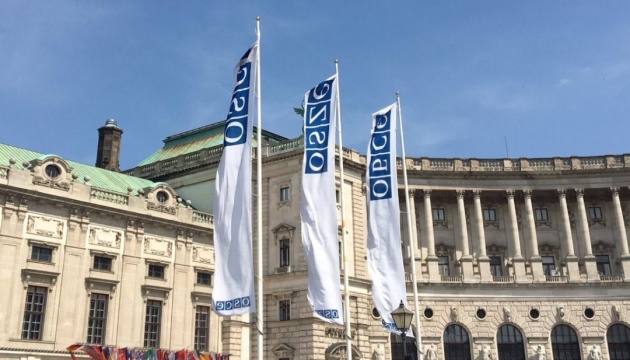After the resumption of the full-scale aggression of russia against Ukraine, Civil Network OPORA, as a non-governmental organization with huge experience in election monitoring in Ukraine and taking record of electoral fraud, also focused on support to proper documentation of international crime committed during the russian invasion. OPORA team created a web resource https://russiancrime.org and encourages citizens to add the information they have about the war crimes they eye-witnessed.
“It is much harder to hide the crimes in today’s settings. Everyone is aware of the disaster of mass extermination of civilians and infrastructure in Mariupol, Kharkiv, Chernihiv, small settlements in Sumy region, Irpin, Bucha, Hostomel, and others. The question is still open about the numbers of civilians dying during the deliberate act of destruction of Ukrainian cities by the war criminals from the russian federation and the Belarus territory. Because of active hostilities, it is unfeasible to take count of the real losses among civilians, — says Olga Aivazovska, Chair of the Board at OPORA. — However, each individual story and tragedy shall not remain unnoticed by governmental and non-governmental institutions, by local and international organizations. If the right to life is not a meaningless phrase for a civilized world the number of victims will never be a criterion for taking measures.”
The information OPORA collected about international crimes committed by russian invaders will be further transferred to national and international investigative and justice authorities, such as in the framework of the “Moscow Mechanism” initiated by the OSCE ODIHR.
As early as in the beginning of March, 2022, over 40 countries sent and address to the director of the Bureau for Democratic Institutes and Human Rights, Matteo Mecacci. They urged to initiate the Moscow Mechanism for the russian invasion into Ukraine. Ukrainian Foreign Minister, Dmytro Kuleba, responded immediately: “We shall bring the russian federation to justice for the war crimes and crimes against humanity, — he posted on Twitter. — The expert mission will forward the facts for the judiciary, such as to international courts and tribunals.”
Therefore, on March, 3, after consultations with Ukraine, 45 OSCE member states* activated the Moscow Mechanism. “Moscow mechanism is a procedure that allows a short-term international mission to establish facts to address a specific issue with human rights in the OSCE region. The mechanism has the name related to the fact of its adoption at the meeting of the Conference on Security and Cooperation in Europe (CSCE) in 1991 in Moscow.
The “Moscow Mechanism” envisages the creation of an independent mission to explore the information on violations of international law on human rights and international humanitarian law, on war crimes, and crimes against humanity, including deliberate and indiscriminate attacks against civilians and civilian infrastructure. The mission members shall establish the facts and draft a written report. On March, 15, a mission of three experts started their work. Ukraine selected the experts from the suggested list.
The mission report will have a legal value to bring to justice the perpetrators in national and international courts and tribunals, such as in the International Criminal Court that already started the preliminary investigation of the matter. Furthermore, the report will have a political value, as it will allow to make public and recognized the facts of such crimes and violations committed on the territory of Ukraine against the Ukrainian people.
The International Criminal Tribunal for the Former Yugoslavia created in 1993 resulted from the application of the Moscow Mechanism in 1992 regarding events on the territory of Croatia and Bosnia. In February, 1993, the mission for establishing facts recommended creating an international criminal tribunal for former Yugoslavia, whereas Sweden (that presided in the CSCE at the time) submitted the appropriate proposal to the UN. Four months later, the International Tribunal for Former Yugoslavia was established.
Civil Network OPORA also processed the data that citizens informed via a web resource https://russiancrime.org in the end of February and in March, and sent the information for the OSCE expert mission. The submission included the data on destruction and appropriation of property (especially about the destruction of schools), killing of civilians, use of prohibited weapons, rape, taking hostage, forced expulsion of people from their homes and their displacement, improper treatment of the dead, leaving people with no food. Geographic coverage of information about war crimes: Kyiv, Donetsk, Kharkiv, Zaporizhzhia, Zhytomyr, and Kherson regions. Some posts only contain the description of the crimes, whereas photos, videos, or other evidence are not available. Therefore, to prove the elements of those international crimes, additional testimonies and evidence will be required.
At the same time, OPORA analyzed open sources and collected 450,000 information posts, including 360,000 media files from social media and Telegram channels that serve as video and photo evidence of events occurring in Ukraine.
* Up to 45 countries that activated the Moscow mechanism include Albania, Andorra, Austria, Belgium, Bosnia and Herzegovina, Bulgaria, Canada, Croatia, Cyprus, Czech Republic, Denmark, Estonia, Finland, France, Georgia, Germany, Greece, Hungary, Iceland, Ireland, Italy, Latvia, Lichtenstein, Lithuania, Luxembourg, Malta, Moldova, Monaco, Montenegro, Netherlands, North Macedonia, Norway, Poland, Portugal, Romania, San Marino, Serbia, Slovakia, Slovenia, Spain, Sweden, Switzerland, Turkey, UK, and the United States of America.
